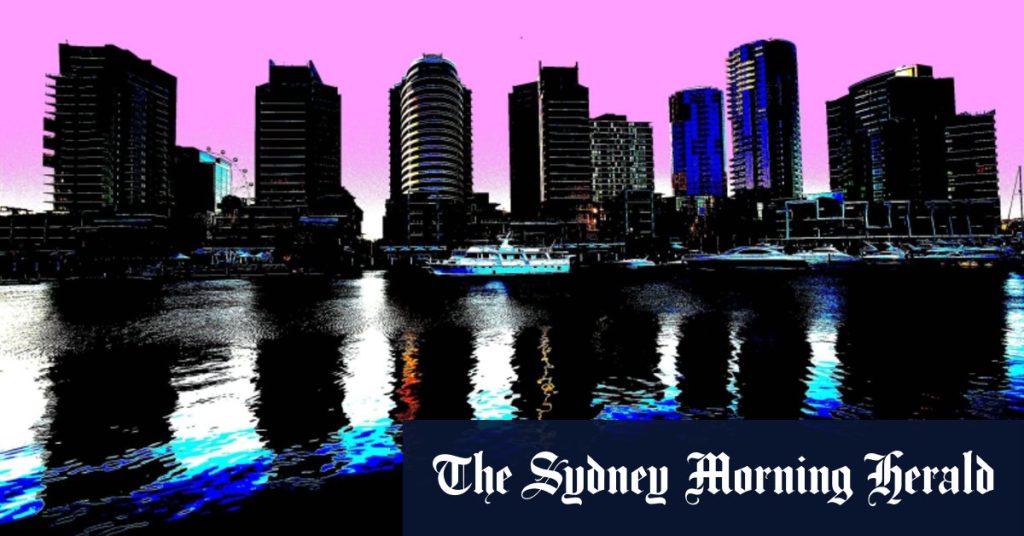The Docklands suburb in Melbourne has undergone multiple transformations over the years, from being a bustling wetland filled with native wildlife to a neglected industrial area that was eventually revitalized as an urban renewal project. Despite efforts to turn it into a vibrant waterfront city, Docklands has struggled to live up to its potential and has faced criticism from residents and experts alike. Issues such as strong winds, lack of public amenities, and the departure of businesses during the COVID-19 pandemic have plagued the suburb.
Despite the challenges, there are people like Daniel Hibberd, the president of the Docklands Chamber of Commerce, who believe in the suburb’s potential and praise its waterfront views and proximity to the city. Planning expert Marcus Spiller also sees Docklands as a success story in terms of economic development for Melbourne. However, the suburb has faced criticism for its developer-led planning approach, which prioritized commercial interests over public amenity.
The population of Docklands has been steadily increasing, with a diverse mix of residents who are young, highly educated, and culturally diverse. While efforts are being made to increase the number of residents and revitalize the area, challenges remain, such as the high proportion of renters and the lack of community facilities. There are calls for more social and affordable housing, as well as innovative ownership models to create a sense of community and belonging among residents.
The suburb’s skyline is dominated by gleaming office towers that house apartments and businesses, but many of these buildings have been left vacant due to the shift towards remote work during the pandemic. The shutdown of attractions like the Melbourne Star Observation Wheel and Central Pier has also impacted the area’s appeal. Suggestions for revitalizing Docklands include investing in cultural infrastructure, rethinking the mix of land uses, and creating more housing opportunities. The goal is to make Docklands more vibrant and appealing to residents and visitors alike.
The loss of Central Pier, once a landmark in Docklands, has been seen as a missed opportunity for revitalization. There are proposals for redeveloping the area with attractions like a music venue, fresh food market, or university campus. Experts emphasize the need to make Docklands more like other vibrant Melbourne neighborhoods by focusing on a diverse range of qualities that make it a desirable place to live and visit. With the right investments and planning strategies, Docklands has the potential to become a thriving urban community that embraces its waterfront location and offers a high quality of life for residents.















